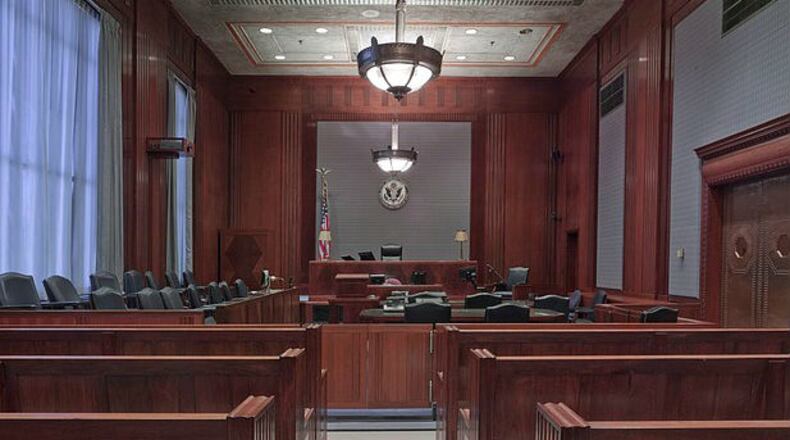A Texas judge has been reprimanded by state judicial ethics officials after they found that she “shamed” jurors over their guilty verdict in a 2016 sexual assault case.
The jury foreperson told members of the Texas Commission on Judicial Conduct in August that state District Judge Teresa Hawthorne said the panel’s “punishment was too harsh” and that she “did not believe the victim was raped at all.”
In a public reprimand issued last week, the commission concluded that Hawthorne's conduct "constituted willful and/or persistent violations" of the Texas Code of Judicial Conduct and that those violations are "clearly inconsistent with the proper performance of her duties."
The Dallas Morning News reported that Hawthorne, who is seeking a third term, will remain on the bench despite the reprimand. The judge declined to comment on the commission's decision.
The reprimand, which was issued Nov. 9, states that Hawthorne presided over the October 2016 trial of a defendant named Joe L. Garrison, who jurors found guilty of aggravated sexual assault and sentenced to 99 years in prison. Garrison, 53, is imprisoned in the William "Bill" Clements Unit in Amarillo, Texas Department of Corrections records show.
Hawthorne met with the jury after they rendered their decision in Garrison's case. Three jurors, including the foreperson, told the commission that the judge admonished them on the verdict and accused them of not deliberating thoroughly enough.
"Quite frankly, I am disturbed," Hawthorne said, according to one juror. "I am disturbed by the way you came back with such a harsh verdict and sentence for this man's life in such a short time. Did you even discuss the details of the case at all?"
The juror said that Hawthorne went on to say that if she had been on the panel, there “would have been a hung jury.” She also said she wanted to hear from the defendant’s mother during the trial.
The testimony of the two other jurors mirrored the first woman's statements to the commission, according to the reprimand. One of the three told commissioners that Hawthorne asked "how (they) could have a good conscience about (their) decision."
The judge also told the panel that if any of them were selected as a juror in the future, they would “need to spend more time going over the facts, and that (they) should be sure that (they) give the defendant a fair decision on his or her being guilty, because she thought (they) convicted an innocent man.”
Hawthorne admitted to the commission that she told jurors she would have found Garrison not guilty, but she denied the other comments they attributed to her.
"The judge denied that she shamed or reprimanded the jury for their verdict," the commission document states. "She stated that she regrets 'that all of this happened' and that she 'never intended to upset anyone,' but she could not lie to the jury when they asked her what she thought of the case."
The commission also reprimanded Hawthorne for intervening with a Lubbock County judge in a 2014 criminal case involving her nephew. In that instance, she emailed the judge in his case and requested that the warrant for her nephew’s arrest be withdrawn, the document says.
She also voluntarily testified on the nephew’s behalf in an August 2016 probation revocation hearing.
"During her testimony, Judge Hawthorne referenced her judicial position on three separate occasions, and offered her opinion as to her nephew's character," the commission reprimand states.
Hawthorne admitted that she testified without being subpoenaed in her nephew’s case, which violated a portion of the state Code of Judicial Conduct that states a judge shall not voluntarily testify as a character witness in a case.
The commission found that she also violated judicial canon when she “used the prestige of her judicial office” to help resolve her nephew’s legal trouble and engaged in an “ex parte” conversation with the judge in the case.
The Morning News reported that public reprimands for judges are rare, particularly when the judge receives two reprimands at the same time.
A Democrat, Hawthorne took office in January 2011. She made waves that December when she ruled in a double murder case that the state’s death penalty statute was unconstitutional.
The Morning News reported at the time that Hawthorne argued the law allowed prosecutors to arbitrarily seek the death penalty.
Her decision was later overturned and the murder case was reassigned to a new judge, the newspaper said.
About the Author
The Latest
Featured

